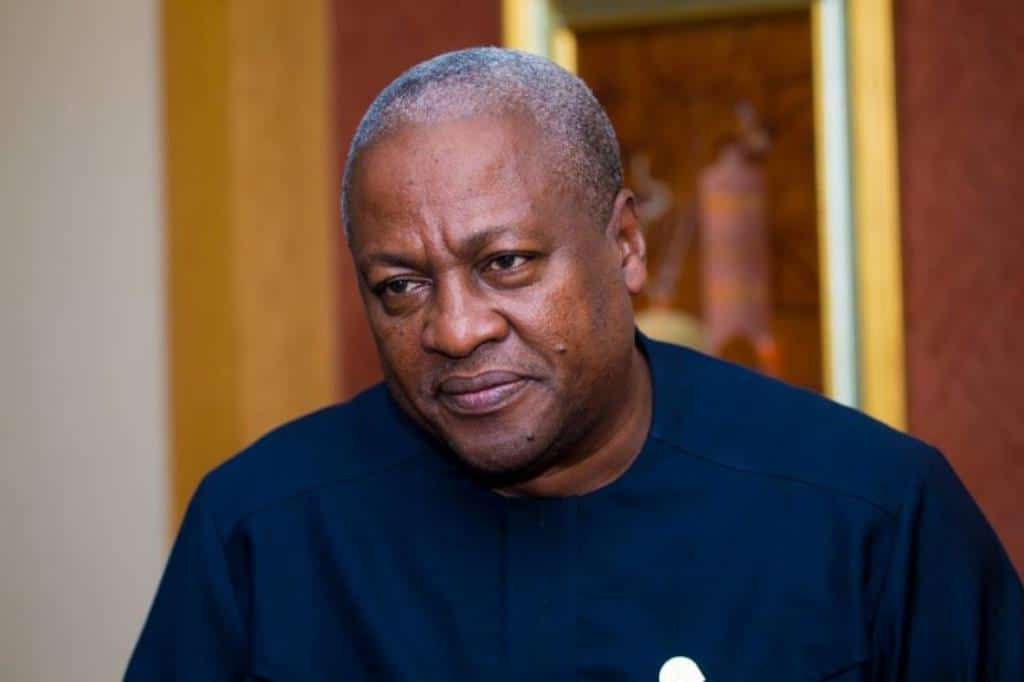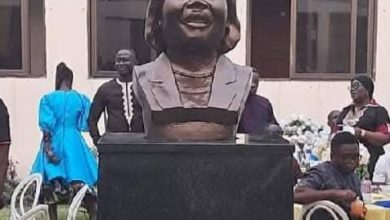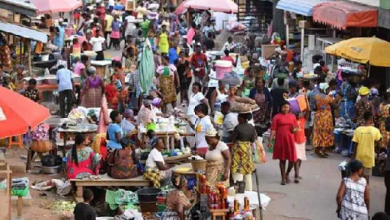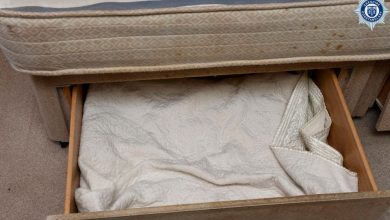Airbus Scandal: OSP clears John Mahama of wrongdoing, identifies him as ‘Government Official 1’

The Office of the Special Prosecutor (OSP) has officially identified former President John Dramani Mahama as “Government Official 1” in the Airbus Scandal.
Speaking at a press conference in Accra on Thursday, August 8, Special Prosecutor Kissi Agyebeng also confirmed that Mahama’s brother, Samuel Mahama, was the individual referred to as “Intermediary 5” in the case.
According to the OSP, both UK and US courts had previously identified John Mahama under these aliases, though investigations have found no evidence implicating him in any corrupt activities related to the Airbus deal.
The OSP clarified that John Mahama had no involvement in the procurement process or the establishment of the agency relationship between Airbus and intermediaries associated with the purchase of military transport aircraft for the Ghana Armed Forces.
The investigation concluded that John Mahama’s communications with Airbus officials were motivated by good intentions, and that his brother’s involvement as an intermediary appeared to be a coincidence that drew the attention of UK and US authorities.
Former Special Prosecutor Martin Amidu had initiated investigations in 2020 into the deal, which was part of Mahama’s administration’s efforts to acquire two military transport aircraft from Airbus. Despite the international scrutiny, the OSP found no evidence of corruption or related offenses involving Mahama or his brother.
Background of the Airbus scandal: Ghana’s military aircraft purchases and the corruption allegations
Ghana acquired three military aircraft, C295s, from Airbus as part of a broader effort to modernize the nation’s Air Force. The first of these aircraft was delivered in November 2011, the second in April 2012, and the third in November 2015. These purchases were aligned with the Ghana Armed Forces’ 2009-2012 Strategic Plan and were approved by Parliament after significant debate.
Funding for the first two C295s came from a €60 million loan from Deutsche Bank S.A.E., while a further €11.75 million loan from Fidelity Bank Ghana Limited was used to acquire two DA42 MPP Guardian surveillance aircraft. Additionally, Parliament approved a $105 million loan from the Brazilian Development Bank for the purchase of an Embraer E190 jet, along with spare parts and the construction of an aircraft hangar.
At the time, the then-Minority Leader, Osei Kyei-Mensah-Bonsu, criticized these deals as lacking transparency and accused the government of inflating the contract sums. Despite these criticisms, the government proceeded with the purchases, citing the need for military aircraft to support strategic operations, such as surveillance of offshore oil fields, border patrols, and the transportation of troops.
In November 2014, then-President John Mahama announced plans to further strengthen the Ghana Airforce with additional military equipment, including Super Tucanos and Mi-17s, despite continued opposition.
The Airbus scandal came to light when a UK Crown Court in Southwark approved a Deferred Prosecution Agreement (DPA) between the Serious Fraud Office (SFO) and Airbus SE on January 21, 2020. The court found that Airbus had engaged in widespread bribery to secure contracts in several countries, including Ghana. The DPA allowed Airbus to avoid prosecution in exchange for paying over £3 billion in fines.
The UK court revealed that Airbus had used intermediaries with close ties to a high-ranking Ghanaian official to secure the sale of the C295 aircraft. One intermediary, referred to as “Intermediary 5,” was allegedly related to a powerful Ghanaian official who influenced the aircraft purchase decisions. The court documents did not name the individuals involved, but the timeframe coincided with the Mills-Mahama administration.
Airbus initially agreed to pay a €5 million bribe disguised as a commission to Intermediary 5 for promoting the sale of two C295 aircraft to Ghana. While this payment was ultimately blocked by due diligence tests, subsequent deals involving the sale of three C295 aircraft went ahead. Airbus funneled nearly €4 million in bribes through a Spanish third-party company, which was inserted into the transaction to circumvent due diligence.
Despite these revelations, Airbus continued to face scrutiny, with investigations exposing similar corrupt practices in other countries, including Malaysia, Sri Lanka, Taiwan, Indonesia, Russia, and China. The scandal has cast a shadow over Ghana’s military procurement process, raising questions about transparency and accountability in the country’s defense spending.





